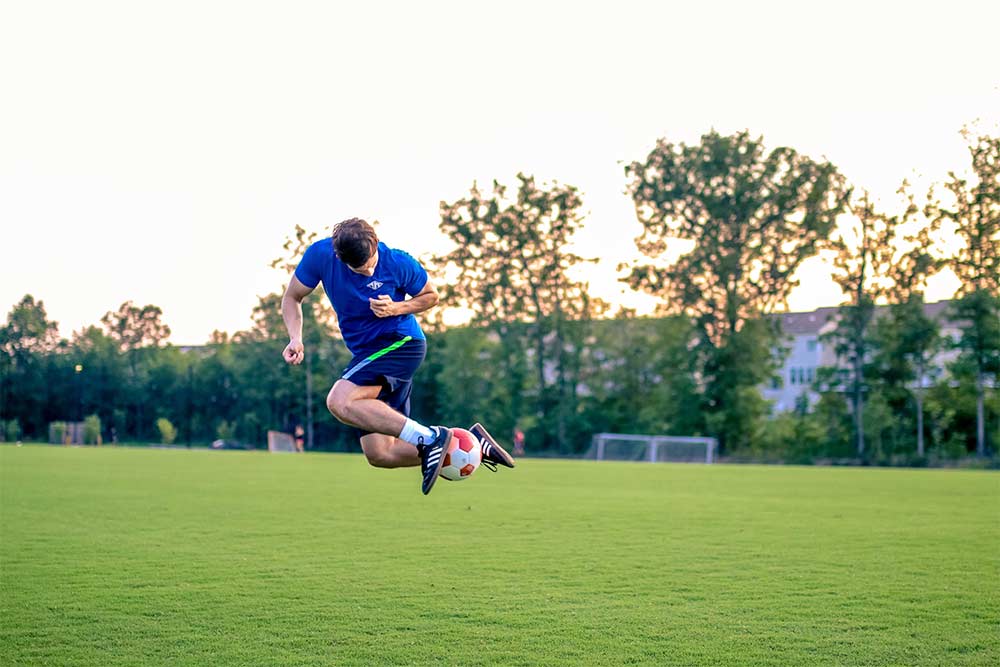Mental Fatigue Can Affect Your Workout

Catherine O’Brien
There is a wealth of research that demonstrates the positive effects of exercise on physical, mental and emotional life domains.
In this way, exercise improves our ability to:
-
Cope with subsequent stressful events
-
Helps us maintain a positive mood
-
Can increase performance on cognitively demanding tasks
Research in the field of sports sciences has begun to investigate the relationship between exercise and cognitive function from the opposite direction. That is, how does engaging in a cognitively demanding task influence one’s experience of exercise and performance.
The Research
 Research has demonstrated that cognitive strain can have carryover effects which can produce more intense perceptions of physical tasks. Interestingly, physiological variables like oxygen consumption and cardiac output are often unchanged by cognitive load.
Research has demonstrated that cognitive strain can have carryover effects which can produce more intense perceptions of physical tasks. Interestingly, physiological variables like oxygen consumption and cardiac output are often unchanged by cognitive load.
The Research conducted by Zering, Brown, Graham and Bray (2016) examined the role of cognitive control exertion in perceived physiological response in a graded exercise regimen. They chose to look at a graded exercise regimen because it had never been observed before in the context of cognitive load and because “the progressive nature of the graded exercise test allows for insight into variables that may not be affected at lower levels of exercise intensity” (Zering et al., p.2).
They hypothesized that engaging in a cognitively demanding task would lead to lower performance on a subsequent physical fitness test.
Related Article: Think Positive Thoughts For A Better Workout
The Study
To test this, Zering et al. established control and cognitive control exertion conditions.
In the control condition, participants sat and watched an affectively neutral documentary for about 10-minutes. In the cognitive control exertion condition, participants completed the StopIt™ task which had been previously employed in other studies involving cognitive exertion.
Participants worked on this task for approximately 10- minutes as well. The study was counterbalanced such that some participants watched the documentary on their first lab visit and others experienced the StopIt™ cognitive control exertion condition on their first visit. Visits to the laboratory were separated by 1-week.
Following the control or cognitive exertion control task, participants underwent an exercise test on a cycle ergometer. This was a graded exercise test meaning the intensity of the gear was increased progressively throughout. Participants reported their perceived levels of exertion (RPE) using the Borg scale every 30 seconds throughout the test. Physiological measures like heart rate, oxygen consumption (VO2 max), carbon dioxide production (VCO2) were collected during the test as well.
The Results
In line with the findings of previous studies, Zering et al.’s research, which used a graded exercise protocol, produced similar results. They found no effect of cognitive control exertion on measures including peak heart rate, breathing frequency, VCO2 and respiratory exchange.
Interestingly, however, there were significant differences in VO2 max levels and perceived levels of exertion such that the cognitive control exertion conditions led to lower VO2 max scores and higher perceived levels of exertion than the control condition.
These findings are interesting because they demonstrate a change not only in measures of perceived difficulty (RPE), but also measures of actual performance (VO2max). These results support the carryover hypothesis and demonstrate how cognitive exertion and greater cognitive challenges can have negative effects on future physically demanding tasks.
Takeaway
So what could this mean for you?
I think one key application of this research is in choosing the time of day during which we work out. There are cognitively demanding tasks in virtually every job so it is feasibly that negative carryover effects are impairing post-work exercise sessions.
These results may suggest that, after a day packed with cognitively demanding activities, workouts may seem more challenging. In this way, Zering et al.’s findings may provide support in favor working out in the morning following a restful night’s sleep as opposed to after a long day at the office.
While the research suggests that workouts may seem more difficult after experiencing a cognitively demanding task, I do not think the findings suggest that one should totally forego a workout after a particularly stressful day. I am of the mind that working out after a long day is better than not working out at all. If the after work time slot is the only one that works for you, consider taking a few minutes after work to unwind and relax your mind before hitting the gym.
Related Article: A Midday Cardio Session May Make You A Better Worker
Click edit button to change this text.
Reduce Cigarette Cravings with Acute Exercise
Catherine O’Brien It is no secret that smoking is a major health hazard that significantly increases risk of cancer, heart disease, stroke and other health problems. That said, 20% of adult men and 16% of...Effects of Outdoor Exercise
Catherine O’Brien Why Does Exercising Outdoors Feel So Much Better? I have always been a proponent of outdoor exercise, particularly running. There is something so satisfying and therapeutic about the fresh air and the sound...Music – Your HIIT Recovery Secret Weapon
Catherine O’Brien The effects of music on exercise experience is a common theme throughout my articles. I am always interested in the relationship between music and physical activity and how music can alter an exercise...Vestibular Migraines: Could Exercise Be The Answer?
Catherine O’Brien My last article highlighted the inverse relationship between headaches and VO2 max levels such that individuals who experienced headaches regularly had, on average, lower VO2 peaks than their control counterparts. Perhaps one of...Which Is Better For The Brain – Long Duration Or Short High Intensity Exercise?
Catherine O’Brien High intensity interval training (HIIT) is a form of exercise that utilizes “repeated bouts of short-to-moderate duration exercise at an intensity of 85-90% of peak oxygen uptake or 90-95% of peak heart rate...3 Strength Exercises For Individuals With Essential Tremor
Catherine O’Brien Essential tremor (ET) is a neurological disorder characterized by involuntary and rhythmic shaking. Typically, tremors occur in upper extremities such as the hands but tremors can exist in other body parts as well...References
Zering, J.C., Brown, D.M.Y, Graham, J.D., and Bray, S.R. (2016). Cognitive control exertion leads to reductions in peak power output as well as increased perceived exertion on a graded exercise test to exhaustion. Journal of Sports Sciences.














